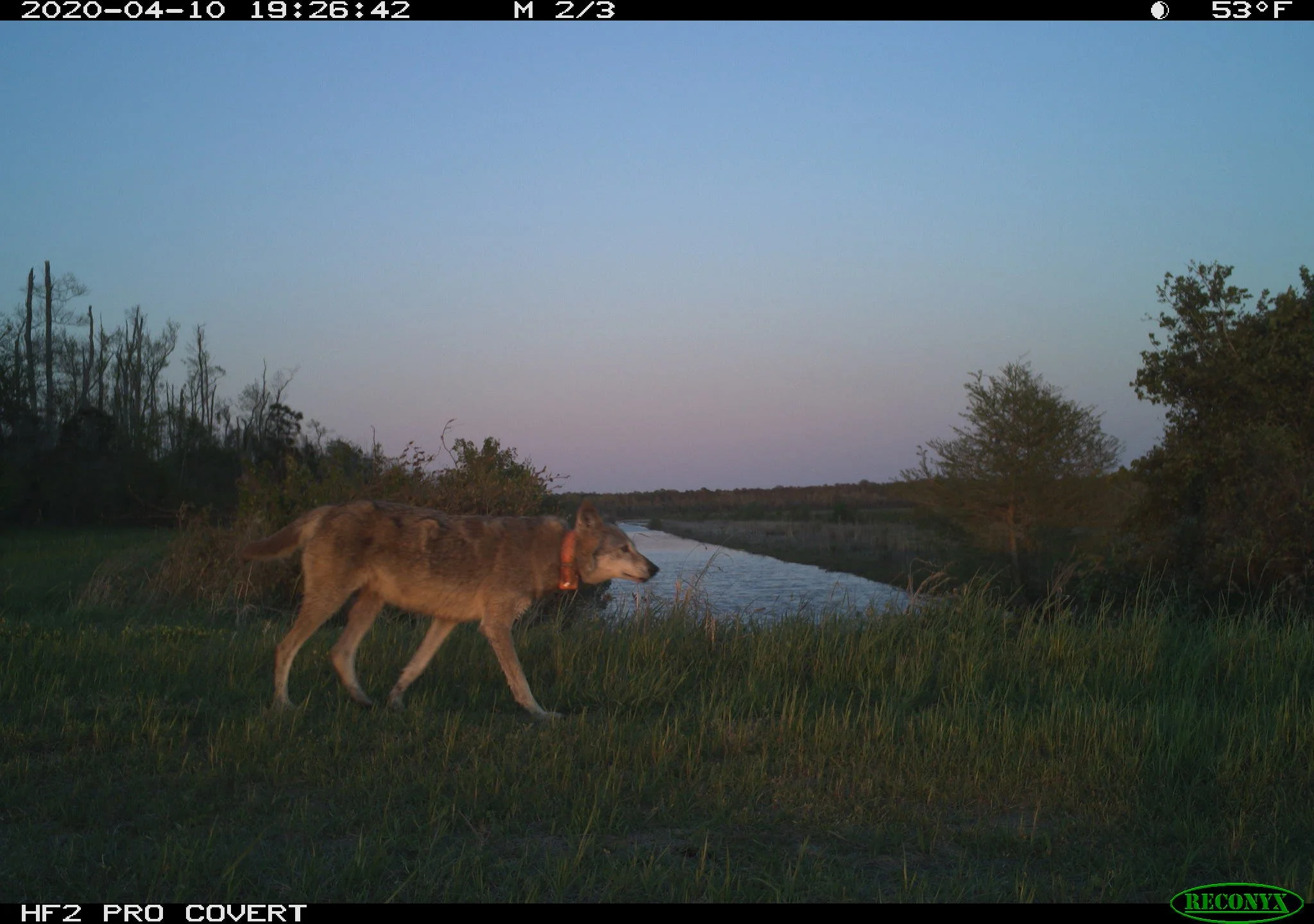2021 has been a busy and productive year in and around North Carolina’s national wildlife refuges (NC NWRs). We made great progress in raising awareness of NC NWRs with Catawba College and the surrounding community of Salisbury, NC by presenting a slide show about the 11 national wildlife refuges in North Carolina with a follow-up virtual meeting with the faculty of the Catawba College Center for the Environment faculty. The faculty is receptive to the opportunity of providing college interns for science-based project work on NC NWRs.
Chowan University senior biology major Skadi Kylander checking Prothonotary Warbler nest boxes at Alligator River NWR, NC
Chowan College biology professors were given a National Wildlife Refuge Association grant of $7,500 to place prothonotary warbler nest boxes on Alligator River NWR. The project started and will continue for several years. Students from this university are involved in this science-based migratory bird project. The data gathered will help the refuge managers and biologist better understand the status and needs of the important, declining forested-wetland dependent species.
Wildlands Network made a wonderful short public outreach video about red wolves that points out the fact that the wild red wolves in NC have very little impact on other wildlife. The video has been viewed by an audience all across the nation and is helping local residents better understand this secretive, and most endangered wolf species.
Another big win on the red wolf front this year happened when the U.S. Fish and Wildlife Service abandoned their efforts to change the red wolf reintroduction project federal regulation that has been in place for decades. It allowed the agency from 1987-2012 to grow the wildlife population in eastern NC. Between 2012 and 2020 the agency tried to change the regulation and implemented policies that reflected the desired change and the result was a drastic collapse of the wild red wolf population from more than 130 to less than 20 individuals. The National Wildlife Refuge Association stood strong on objecting to this change in a successful regulation and helped make this happen.
Going forward into 2022 we will continue to work with multiple partners on projects to benefit NC NWRs. The Pocosin Lakes NWR firebreak habitat improvement project is an example where treatment of the existing vegetation in nearly of more than 50 miles of firebreaks that parallel the extensive unpaved road system in the refuge should benefit red wolves by producing more small mammal prey and benefit grassland migratory bird species - creating higher quality wildlife corridors.
We hope to have a new National Wildlife Refuge Association representative working specifically on Pocosin Lakes NWR habitat and water management projects gaining the help of interns from colleges and universities in the surrounding communities, like Catawba College, to help execute pre and post wildlife monitoring on the fire break project and complete water level monitoring and management in the hydrology restoration areas designated on Pocosin Lakes NWR. Pocosin Lakes NWR, its habitat, wildlife, and the students who participate will all benefit.
Released red wolf male in Alligator River National Wildlife Refuge, NC | USFWS
The National Wildlife Refuge Association along with our important partners will continue to protect, promote, and enhance North Carolina’s national wildlife refuges and those across the country. We plan to continue monitoring and will provide input on the North Carolina Department of Transportation road and bridge planning process on the sea-level rise vulnerable North Carolina Hwy 12 on Pea Island NWR, and we will continue to monitor the red wolf recovery efforts and assist partners who are working for the same goal - recovery of the red wolf in the wild - in NC and beyond.



